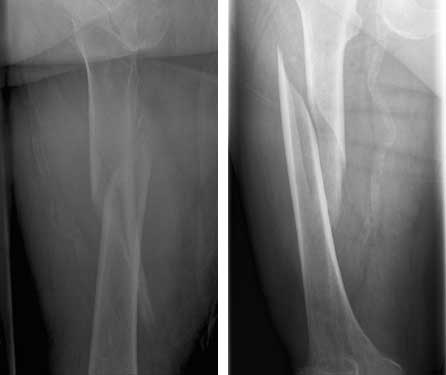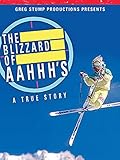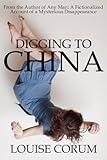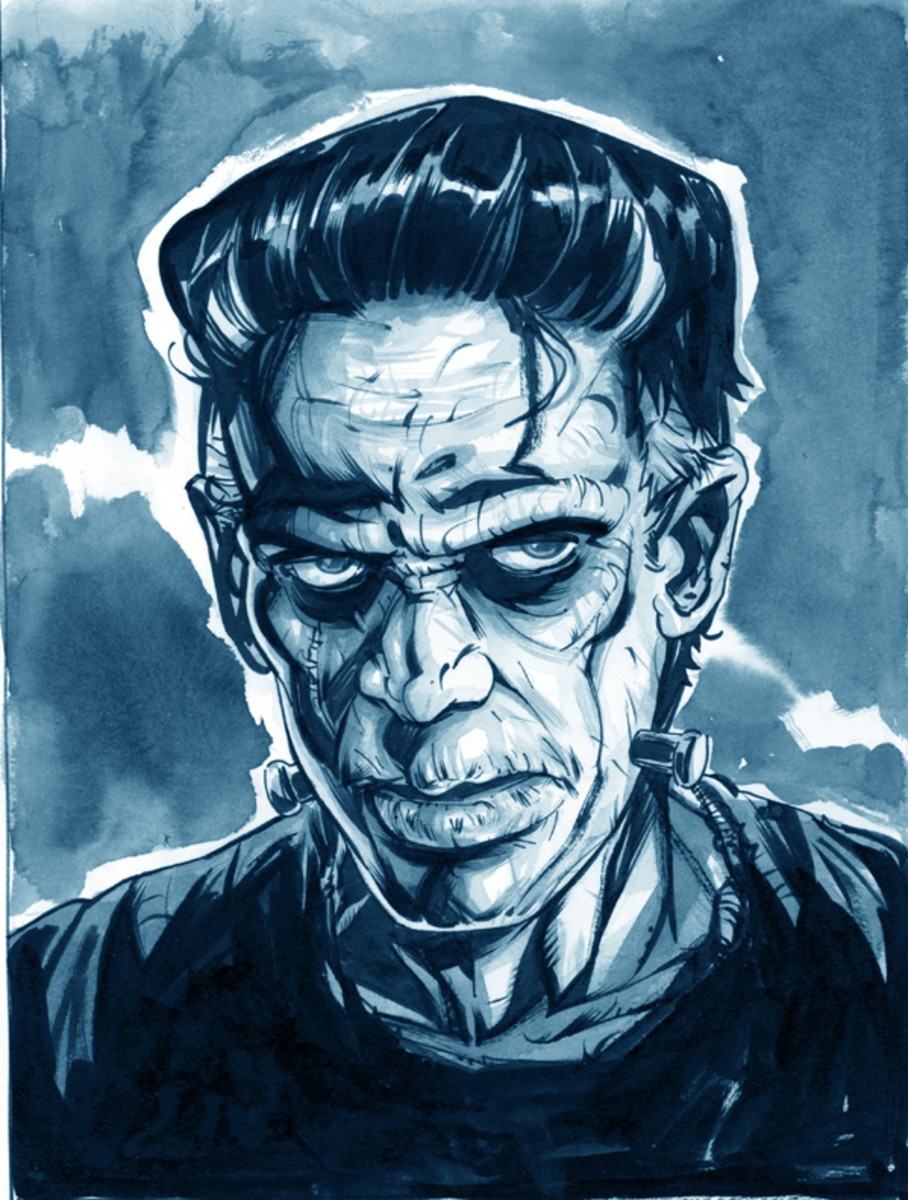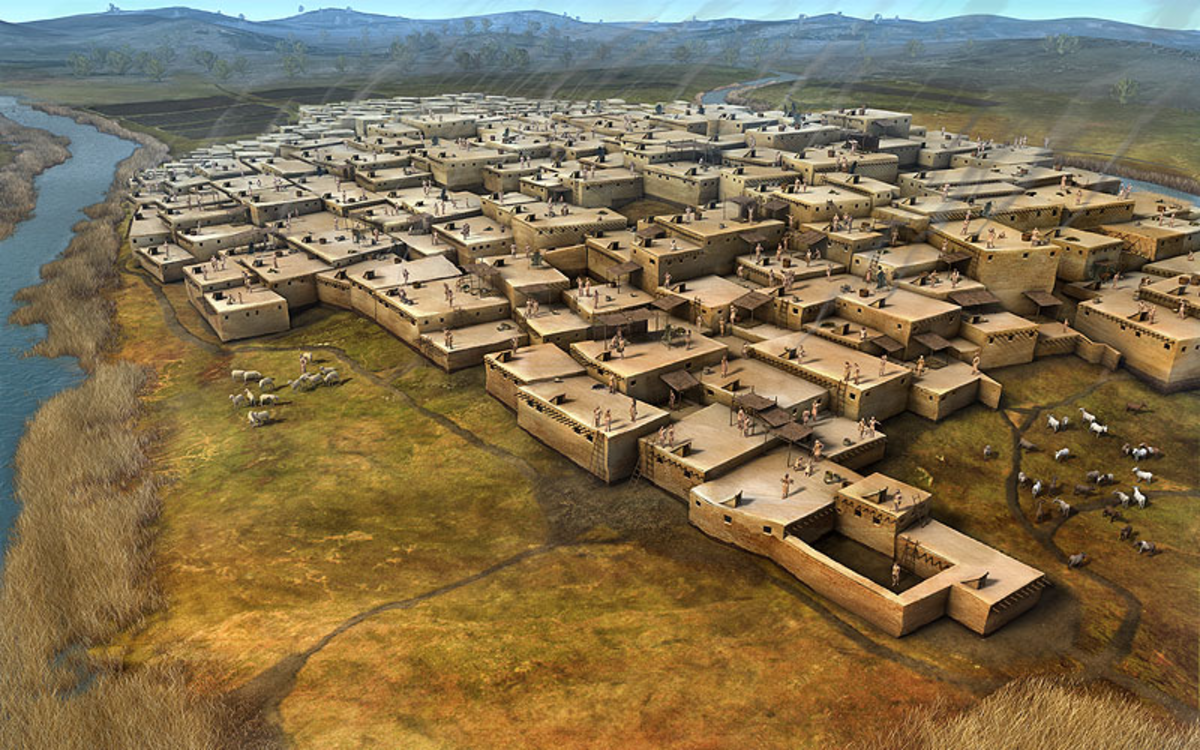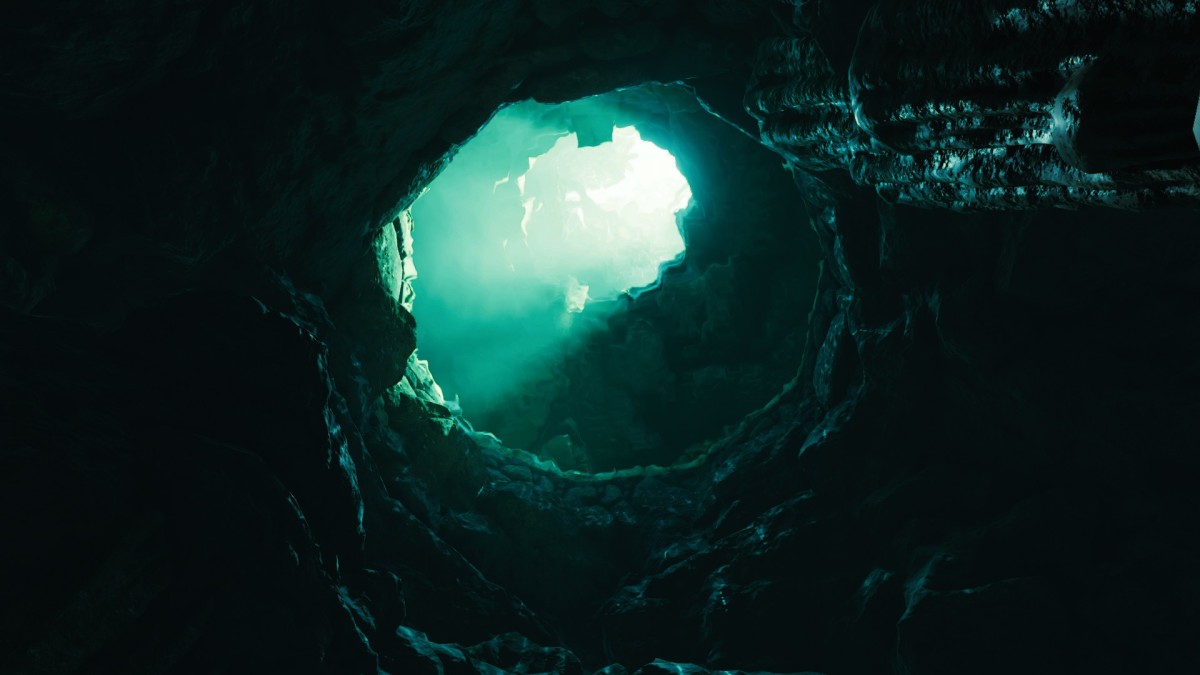Finding the Red Thread
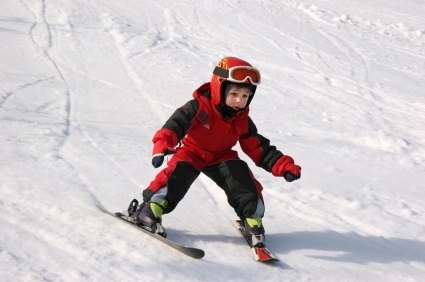
Femur and the Revision Process
The revision process is my favorite part of writing. My initial flurry of writing tends to be frenetic and chaotic. I have an idea, I scribble it down. On occasion, it comes out with a full arc, a beginning, middle, denouement and ending. More often than not, it comes out as an outline to be fleshed out later.
These ideas come sometimes during my set writing times, other times, it’s while I’m out and about. I always have a notebook with me. The initial free flow of ideas is very exciting, though it can be overwhelming and insomnia inducing.
My muse can be sparked by many things. Sometimes, a conversation I overhear, a song in the background, something my dogs or the weather are doing, my wife. In my day job, I work in retail (cutting meat, no less) and, working with the public is an obvious treasure trove of ideas, characters and quotations. I get inspired, I write and it usually comes out really messy. Or, worse, it comes out, overly sophisticated and overly writer-ish
That’s where revision comes in. This is where whatever I’m writing takes focus and shape and prepares itself for completion (whatever that means) and for publication (if that is the end goal which, for me, it almost always is). The revision process is where my random thoughts and ideas gain cohesiveness. The revision process is how a jumble of great and not so great prose can take shape. I’m not afraid to cut or add anything, after all, cutting doesn’t mean “erasing”, it means “saving for later”. The revision process is where my best lines of prose, my most clever anecdotes, my most observant witticisms, my chaff, if you will, get cut from the wheat. My mind becomes a discriminate threshing floor.
Let’s take my essay Femur . This was an essay about one of my earliest memories, when I broke my leg skiing at five years old. I wrote a rough draft very quickly and found a lot of good things in it.
I also found a lot of excrement.
I submitted it to a workshop, got some advice and refined it further. It needed focus. It needed less of the parenthetical statements and run-on sentences that I am so fond of. I took out much of the writer language and tried to sound more conversational. I cut the introduction severely; I cut some of the extraneous details that caused the lack of focus in the piece. I found a lot of good things in it.
I also found a lot of excrement.
There was less, but it still reeked of excrement in parts.
Moreover, I still didn’t know what the essay was about. Why did I write nit? What was the theme? What was the red thread that writer’s and writing teachers speak so much about? Why would anyone, apart from me, want to read this essay?
I once again subjected it to a workshop. Afterwards, I sliced and diced, cut and pasted, groaned and moaned and cussed, and then it hit me: This essay was about love. It was about the sacrificial love of a parent towards a child and the love I felt as a child. I had my focus, my red thread, and I set out to refine my essay to show this. I submit it again now, aware that there is a lot of good in this essay, and probably still some excrement.
But it’s better. It’s closer to being “done”. It’s got focus and direction. By cutting the extraneous and really converging on the message between the lines and why I remember the incident (apart from the obvious) I was able to shape the piece into something I’m almost proud of and almost satisfied with.
I present it to you now.
For comparison, please read the original first.

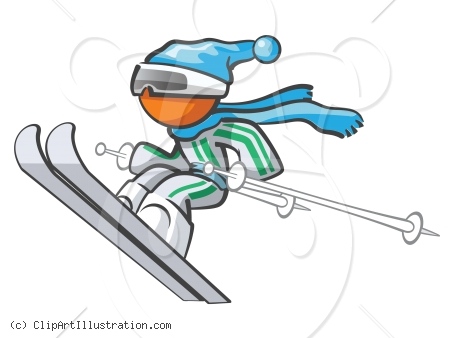
Femur
When I was growing up, my dad was a youth pastor, professional speaker and musician and was often hired to speak at church junior high and high school retreats. One particular weekend when I was five years old, he was hired to speak and perform at a winter youth retreat in Mt. Baker in North Western Washington. This was the weekend, my parents decided, that I would try skiing.
We awoke much too early for my taste and went down to the rental kiosk. This was a privately run rental kiosk and, as such, we had more one on one time with the rental staff to get our equipment on and fitting properly. Since I was so small, it was hard to find skis that fit me, but, eventually we did and I remember walking out of the kiosk with giant skis over my shoulder and awkward boots, like heavy, molded plastic weights, dangling from my feet.
Once on the slope, my dad skied down with me. He situated me between his legs and pointed my skis downward. We went down several bunny runs like that. I was a pretty quick study and, dad soon let me ski down without his aide. I enjoyed soaring down the mountain dressed for a blizzard, even though the sky was absent of clouds. I loved the sharp feel of the snow bouncing off my skis to my face and the wind singing in my ears. I enjoyed the music of the crunch and swish of the snow under my skis. I learned that if I tilted my skis up slightly, I could stop or slow down. This was even more effective—and abrupt—if I maneuvered the skis into an inverted "V" shape. If I moved my hips right or left, I could turn and thus avoid trees, snow banks and fellow skiers.
I had just mastered a bunny slope and was standing near the bottom, catching my breath. I looked behind me and saw my mom lift her yellow goggles off her face. She couldn’t see me, apparently lost in the snow and the trees. And then I fell. I don’t know why or how, I just fell. My mom says someone crashed into me, but all I remember is falling. I saw my ski boot above my head, attached to my ski, whose tip was wedged in the snow. The bindings didn’t release and the torque of the ski combined with the angle of my fall caused a sharp pain in my left leg.
I began to cry and looked up at my mom, who had suddenly turned her focus to me. I wasn’t sure if she saw me fall, but she heard my screams and I watched her use her poles to get her skis off and rush down to me, which still seemed to take a long time with pain in my leg and ski boots on her feet.
“Bill! Bill! Justin’s hurt!” she was yelling, on her way down to me.
My dad appeared and looked at me and then at my mom. He had an odd look on his face. He asked her what happened and when she told him he said “He probably just twisted his ankle.”
After the initial sharp pain, the best way to describe how my leg felt at that moment would be as a dull, throbbing bruise; an almost nondescript pain. It was like I’d been punched in the leg repeatedly by a large rock. I was scared. My dad asked me if I could walk. When I said no, I remember him dislodging my skis, picking me up and cradling me in his arms as he carefully walked up a snowbank to the lodge. I could see the mild concern in his young face silhouetted against a blue sky as he carried me to our room.
Outside our room, was the main hall which was used for dining and the twice daily group gatherings. My mom made me take a nap, which she thought might make me feel better. I couldn’t sleep and after lying awake for a couple of hours, I grew bored and depressed. A movie was about to play in the main hall and I wanted to watch it. My dad took a mattress from our room, placed it on one of the tables and then laid me on it. I didn’t get much of a chance to watch the film because, before long, I was showered with more candy, hugs and kisses from the high school girls attending the camp then my five year old mind could fathom. My leg hurt and I knew that something was wrong, but I also enjoyed the attention.
It became obvious that my leg was seriously injured when it began to swell and turn blue. I saw my dad speaking to the camp director. I couldn’t tell what they were saying, but my dad looked worried. I found out later that he was torn between his obligation to speak and perform at the camp or partake in a potentially treacherous drive into Bellingham to find a hospital and have my leg, which he still didn’t think was all that serious of an injury, looked at. When the pain didn’t subside after half a day, his fatherly concern won out over his business obligations—no doubt aided in part with gentle prodding from my mother—and it was decided that we would make the short but arduous journey into the city.
Getting me into the car was a trial, as I couldn’t bend my leg without pain shooting through it, and there was no room for my brother’s car seat if I was lying across the seat. I don’t know how we ended up situating ourselves, but we did, because I remember riding in the back of the car down an icy mountain pass. When we arrived at the hospital, dad ran inside and, moments later, I started screaming. I saw two men in blue scrubs come out to the car with a wheelchair.
“Mom! I don’t wanna be in a wheel chair. Please don’t put me in a wheel chair!” I assumed that the extent of my treatment would be to send me home in a wheelchair, where I would be bound for the rest of my life.
Mom soothed me by running her gentle fingers through my hair and telling me the chair was only to help me get into the hospital. She promised I wouldn’t have to stay in it forever. I was skeptical but, in the end, mom won out and I allowed myself to be escorted in the wheel chair.
From there, it’s just blurry snapshots of memory: the X-ray machine and being intrigued that they could look under my skin; the doctor carrying me from the gurney to a wall with terribly bright white lights and a picture of a bone on it showing me, and presumably my parents, that my femur had undergone an injury called a spiral fracture.
Later, I remember the masked and gloved nurses covering me my leg with stinky, cold and wet plaster-of-Paris. My cousin had recently broken her leg in a skiing accident and shortly before the trip I saw her cast. Her knee was slightly bent and it looked uncomfortable. When the nurses attempted to plaster my leg, I straightened it, and felt an excruciating pain through my leg. I began to cry and the nurses grabbed my leg tightly and bent it slightly into what they said would be the most comfortable angle. I was warned that if I didn’t take care of my leg and it didn’t heal correctly, the doctor would have to break it again and the process would begin anew.
I remember my mom giving me sponge baths, and, after I returned to school (I missed a week) my kindergarten classmates writing their names on my cast. I remember the crutches I often used in combat against my little brother. The cast was a fine weapon too, though it required high leg kicks, which I was not terribly adept at and would often result in me tumbling over. I remember enjoying the sympathy I received from my injury and the unbearable frustration at not being able to scratch my leg when it would itch. I remember the way my leg tingled and burned for a few minutes when the cast eventually came off and my skin was reintroduced to oxygen.
This is one of the earliest memories I have and I think now about what a sacrifice my parents made for me. I don’t know if my dad still got paid for that weekend, but I know he took the risk of not getting paid in order to care for me. I don’t know if we were insured and I don’t know specifically how dangerous the drive to the hospital was. I do know in that moment, even with the delays and the doubts, I never felt more loved.

